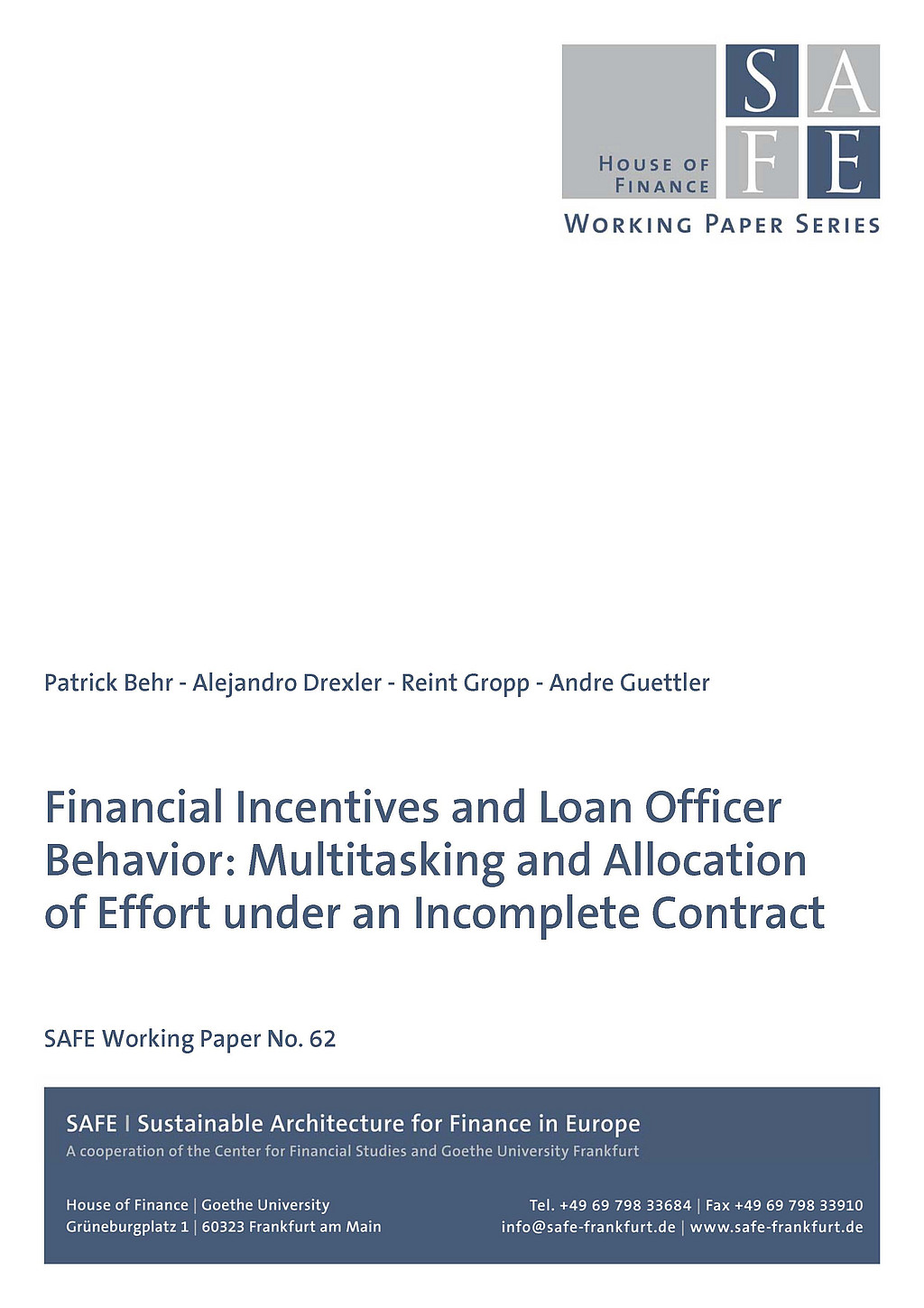
Financial Incentives and Loan Officer Behavior: Multitasking and Allocation of Effort Under an Incomplete Contract
In this paper we investigate the implications of providing loan officers with a compensation structure that rewards loan volume and penalizes poor performance versus a fixed wage unrelated to performance. We study detailed transaction information for more than 45,000 loans issued by 240 loan officers of a large commercial bank in Europe. We examine the three main activities that loan officers perform: monitoring, originating, and screening. We find that when the performance of their portfolio deteriorates, loan officers increase their effort to monitor existing borrowers, reduce loan origination, and approve a higher fraction of loan applications. These loans, however, are of above-average quality. Consistent with the theoretical literature on multitasking in incomplete contracts, we show that loan officers neglect activities that are not directly rewarded under the contract, but are in the interest of the bank. In addition, while the response by loan officers constitutes a rational response to a time allocation problem, their reaction to incentives appears myopic in other dimensions.





